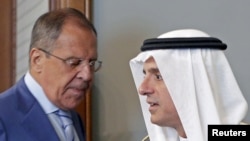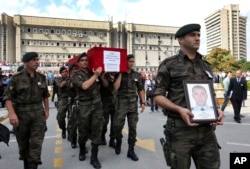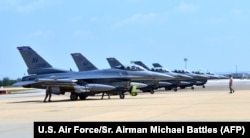With both Saudi Arabia and Iran intensifying regional efforts to end Syria's civil war, observers are warning Turkey, which borders Syria, could be finding itself increasingly marginalized in peace efforts — a process likely to continue with the country lacking a strong government and heading to early polls in November.
The recent Russian-backed Iranian efforts to resolve the Syrian crisis underlined what observers say is Ankara's diminishing role in resolving the Syrian crisis. The Iranians spoke only with Saudi Arabia, which is now seen to be the main player for the Syrian opposition, according to international relations expert Soli Ozel of Istanbul’s Kadir Has University.
'Playing second fiddle'
"At the beginning of the Syrian crisis, Turkey itself was a major or principal actor. Today I find Turkey is playing second fiddle to Saudi Arabia. And Turkey remains attached to the Saudis; obviously it is not going to be able to do anything and it's not really a relevant partner the way it used to be," said Ozel.
Further undermining its diplomatic influence, Turkey is set for early elections in November, after an inconclusive June poll, as well as a resumption of fighting with Kurdish rebels. Former Turkish diplomat Murat Bilhan says Ankara is finding itself increasingly marginalized.
"Internal difficulties in Turkey and the violence, and then the relations with the governments in the south. And of course with the West we have some distance. And these things affect Turkey. It's a passive observer of what's going on in the region now," he said.
Ankara's opening of its key Incirlik air base to U.S. warplanes targeting the Islamic State group is widely seen as a move by Turkey to restore its diplomatic influence among allies and rivals. Observers warn months of political uncertainty facing Turkey likely will further undermine its diplomatic influence.






